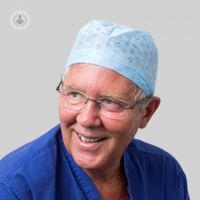How successful is keyhole aortic valve surgery?
Escrito por:Keyhole aortic valve surgery, also known as minimally invasive aortic valve replacement (mini-AVR), is a modern surgical technique used to treat conditions like aortic valve stenosis or aortic regurgitation. This procedure is performed through small incisions rather than the traditional open-heart surgery, resulting in quicker recovery, less pain and a lower risk of complications. The success of keyhole aortic valve surgery is highly favourable, offering numerous benefits for patients.
What are the success rates for keyhole aortic valve surgery?
The success rate of keyhole aortic valve surgery is comparable to, if not better than, traditional open-heart surgery in terms of patient outcomes. Key studies show success rates of around 95 to 98 per cent for minimally invasive procedures, depending on patient health and the complexity of the case. In experienced hands, this approach can lead to excellent short- and long-term survival outcomes.
What are the key benefits of keyhole aortic valve surgery?
- Less trauma: The smaller incisions used in keyhole surgery cause less trauma to the body, particularly the chest muscles and breastbone, which are left intact. This results in quicker recovery times and less postoperative pain.
- Faster recovery: Patients who undergo keyhole aortic valve surgery typically have shorter hospital stays (around five to seven days) and return to normal activities more quickly compared to those who undergo traditional surgery.
- Reduced infection risk: Smaller incisions and minimal chest opening reduce the likelihood of infections, which is especially beneficial for older patients or those with underlying health conditions.
- Better cosmetic outcomes: Since the incisions are smaller and less visible, patients often report being more satisfied with the cosmetic results.
Who is eligible for keyhole aortic valve surgery?
Most patients with aortic valve disease can be considered for keyhole surgery. However, the patient’s overall health, age and specific anatomical factors are crucial in determining if they are a suitable candidate. Generally, patients with fewer complications and no extensive aortic root disease are ideal candidates.
What are the factors that contribute the procedure’s success?
The success of keyhole aortic valve surgery largely depends on the surgeon’s experience, the patient’s health status, and the use of advanced technology. Centres with high-volume keyhole surgery programmes often achieve the best outcomes. Preoperative planning and precise imaging also play vital roles in ensuring a successful procedure.
What are the potential risks and complications of keyhole aortic valve surgery?
Although the success rate is high, keyhole aortic valve surgery, like any surgery, carries potential risks. These may include bleeding, infection, or complications related to the valve itself, such as valve leakage or malfunction. However, these risks are relatively rare in keyhole surgery compared to traditional methods.
What are the long-term outcomes?
Studies show that patients who undergo keyhole aortic valve surgery experience similar long-term outcomes to those who have open-heart surgery. The replacement valves used in the surgery, whether mechanical or tissue, function effectively for many years, with the same durability expectations as in traditional surgery.
Keyhole aortic valve surgery is a highly successful and less invasive alternative to traditional open-heart surgery. With its high success rate, reduced recovery time, and fewer complications, it's an excellent option for patients who are suitable candidates for the procedure. Always consult a specialist to determine if this approach is right for your specific condition.



